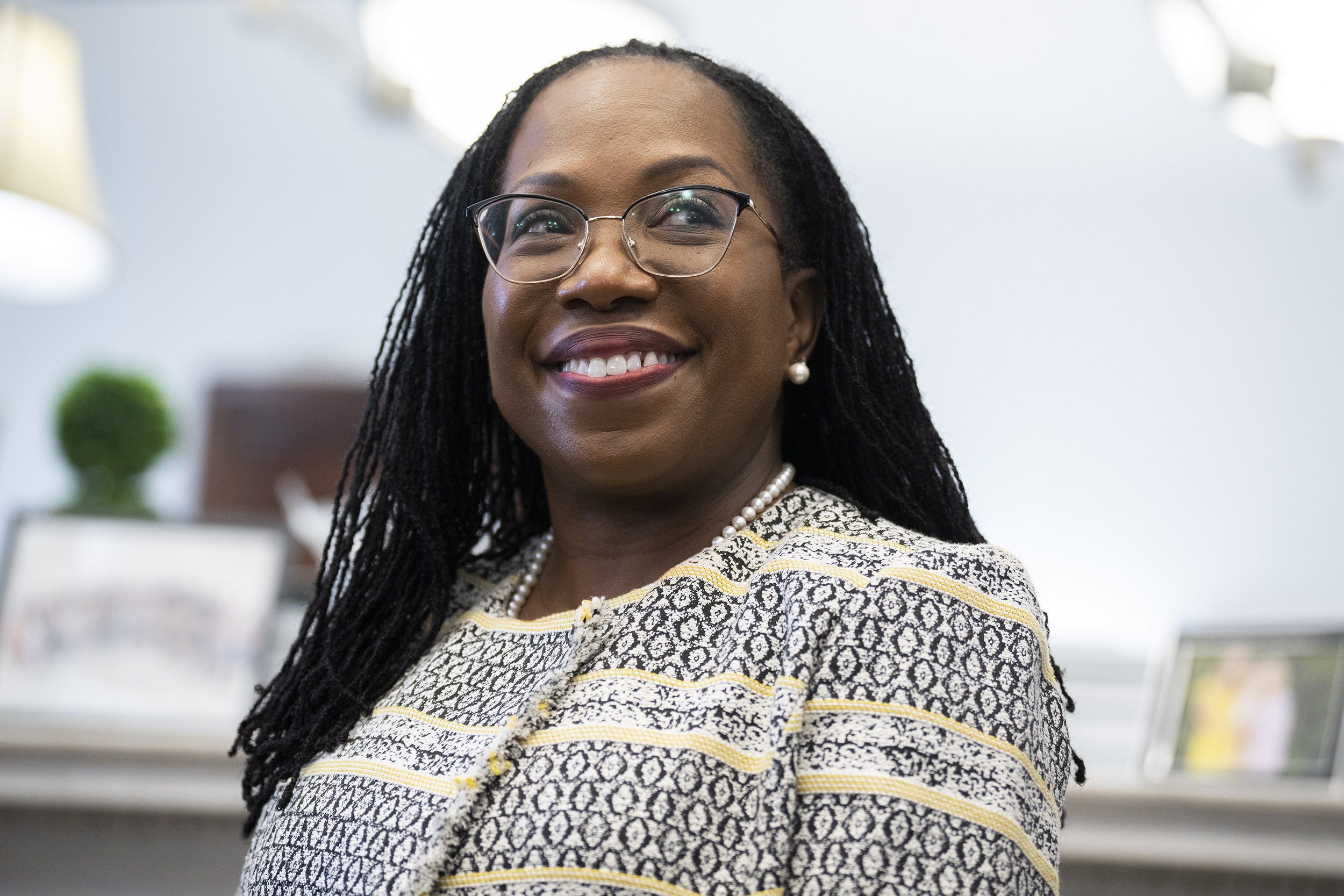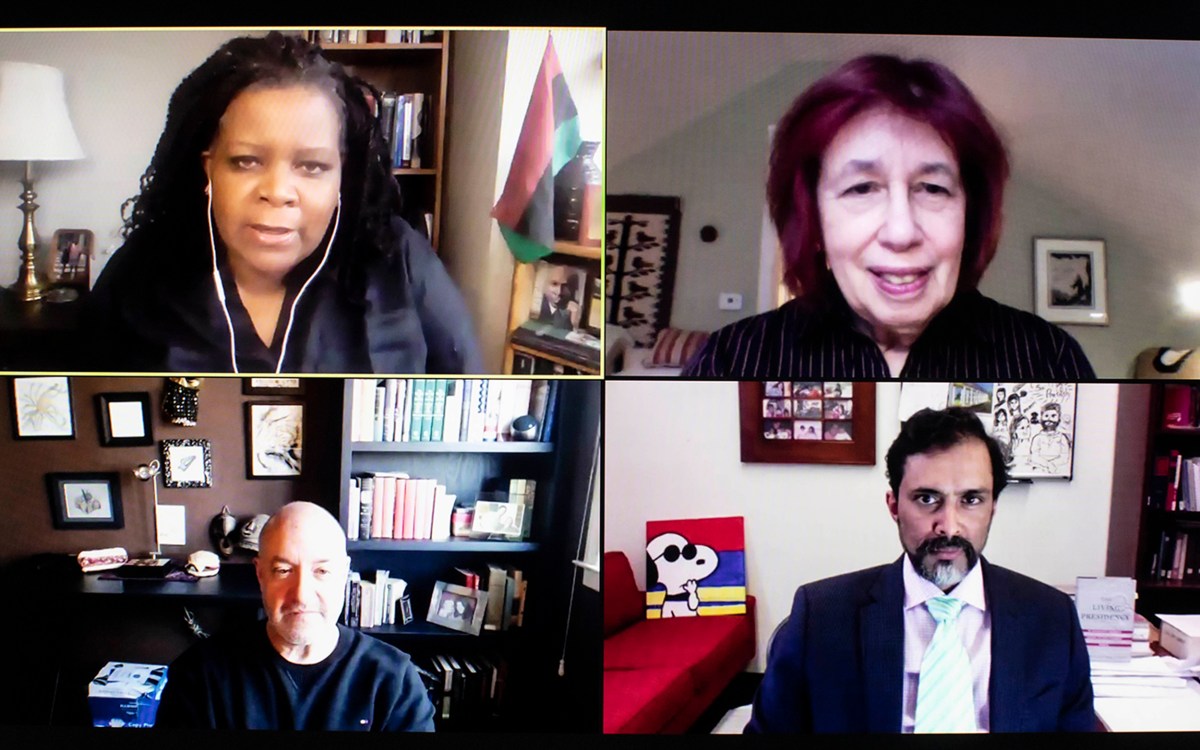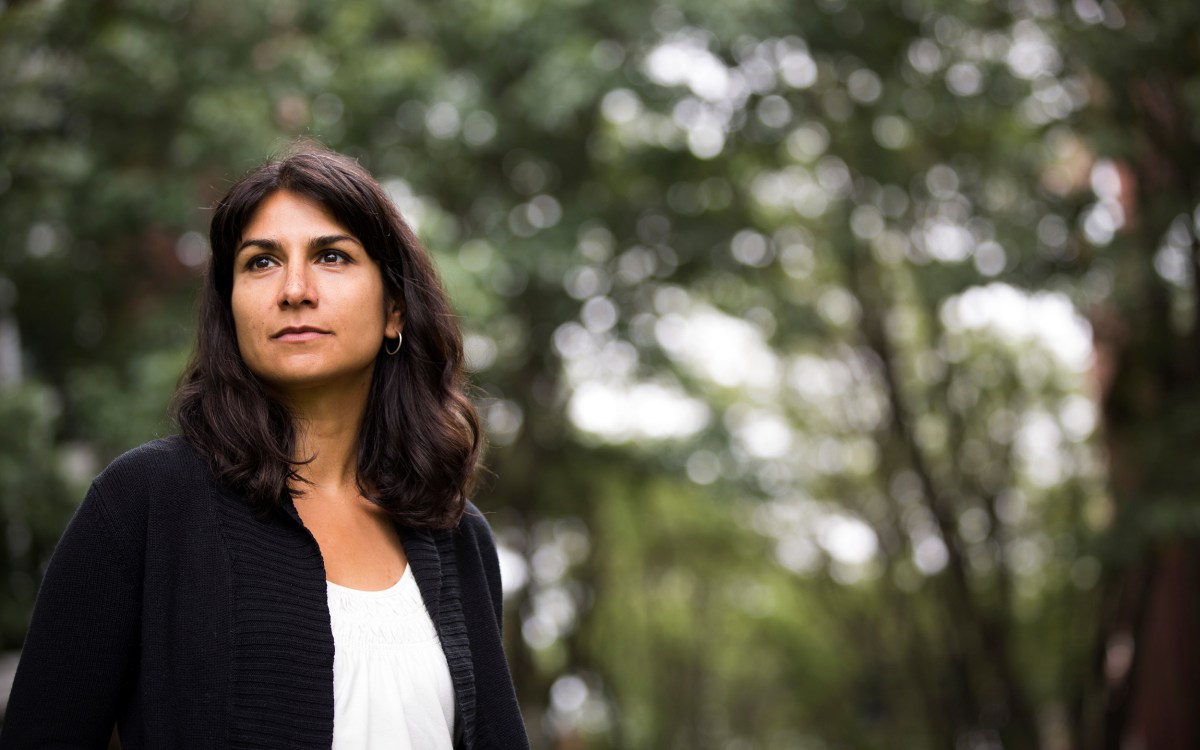
Confirmation hearings begin Monday for Ketanji Brown Jackson ’92, J.D. ’96. The first Black woman nominated to the Supreme Court, she would also be the first justice with experience as a public defender.
Tom Williams/CQ Roll Call via AP Images
Supreme Court nominee’s pioneering background
Legal scholars say Jackson, having been public defender, would bring insight into criminal justice inequities, turn spotlight on vital job
If confirmed to the Supreme Court, Ketanji Brown Jackson ’92, J.D. ’96, will make history in more ways than one.
The first Black woman nominated to the court, Jackson, whose confirmation hearings begin Monday, would also be the first justice with experience as a public defender. She served in the role from 2005 to 2007, often representing indigent clients who seemed sadly oblivious to how they’d been caught up in the criminal justice system, and left with a deepened sense of how to communicate clearly with defendants in her courtroom.
“I think that’s really important for our entire criminal justice system,” Jackson told the Senate Judiciary Committee during a hearing last year to consider her nomination to the U.S. Court of Appeals for the District of Columbia. “Because it’s only if people understand what they’ve done, why it’s wrong, and what will happen to them if they do it again, that they can start to rehabilitate.”
Now, scholars and advocates across the legal community, especially those seeking to eliminate racial inequity in the criminal justice system, are rejoicing at the possibility that a judge informed by this vital but undervalued area of the profession might have a say in the decisions of the nation’s highest court.
“When we talk about criminal defense or criminal justice reform in our country, public defenders have been left out of the conversation entirely or they have received very little attention compared to police or to prosecutors,” said Dehlia Umunna, who worked at the Public Defender Service in Washington and is now a clinical professor of law at the Law School and faculty deputy director of its Criminal Justice Institute.
Having a Black woman who’s been a public defender on the court “will change the deliberative process,” said Premal Dharia, a public defender for 15 years who is currently executive director of the Institute to End Mass Incarceration at Harvard Law School. “It will change how the members of the court are talking to each other and assessing facts and arguing facts. And so, there’s a lot of hope in how it will affect the way the court approaches facts and the cases before it.”
“Public defenders are the system’s check on governmental overreach, on police misconduct, on legal misconduct, on all of these different parts of the system.”
Premal Dharia, executive director, Institute to End Mass Incarceration, Harvard Law School
As a member of the court’s 6-3 liberal minority, Jackson could become a powerful figure of dissent, Dharia added. “And that’s really important, too. Hearing that voice is an important and powerful part of our jurisprudence.”
The nomination also sends “an important signal” to the legal world about where to look for great judges beside the prosecutor ranks, said Esme Caramello, a clinical professor of law and faculty director of the Harvard Legal Aid Bureau, a student-run organization that assists low-income clients on civil matters like housing and family law.
Many students who are passionate about becoming public defenders but also hope someday to join the bench “fear that by becoming public defenders, they are writing themselves out of that future,” she said.
“If somebody who was a lifelong prosecutor can be neutral in criminal cases, and can be a judge, there’s absolutely no reason that someone who’s been a public defender can’t be neutral and a great judge,” said Caramello. “But our choices of who’s qualified to join the judiciary have not signaled that and have forced people to funnel themselves into one type of job if they someday hope to be judges.”
Prosecutors historically receive a disproportionate share of judicial nominations, making up about one-third of federal judges. Only 79 of the 1,077 sitting U.S. District Court judges were once public defenders, according to the Federal Judicial Center. Only eight of the 810 sitting judges on the U.S. Court of Appeals were public defenders, including Jackson, a judge on the U.S. Court of Appeals for the District of Columbia Circuit who had before that served on the bench of federal District Court in D.C.
The imbalance creates institutional blind spots, Dharia said.
“No other lawyers in the system are seeing the law from the perspective of public defenders,” she said. “Public defenders are the system’s check on governmental overreach, on police misconduct, on legal misconduct, on all of these different parts of the system.”
Both Dharia and Caramello hope that an impeccably credentialed nominee like Jackson will begin to dispel misconceptions about the caliber of lawyers who become public defenders and the quality of their work. With its reputation for low pay and overwhelming caseloads, the role can be a hard sell, especially compared with jobs at top firms that pay new lawyers $200,000 per year.
While funding is at “crisis” levels in public defenders’ offices nationwide, the idea that public defenders provide less skillful or less effective representation is “absolutely not true,” said Dharia.
Caramello said although law firm salaries remain enticing, especially for those struggling with student loan debt, more students are choosing to become public defenders because “they recognize the importance that those lawyers play” and have decided, as Jackson once did, that they are up to the challenge.
“Students who come to Harvard often are incredibly talented, they have exceptional credentials,” she said. “And I think, increasingly, students recognize that going into public defense is not a waste of those talents. In fact, it’s exactly where those talents are probably going to be most stretched, put to use, and put to good.”






